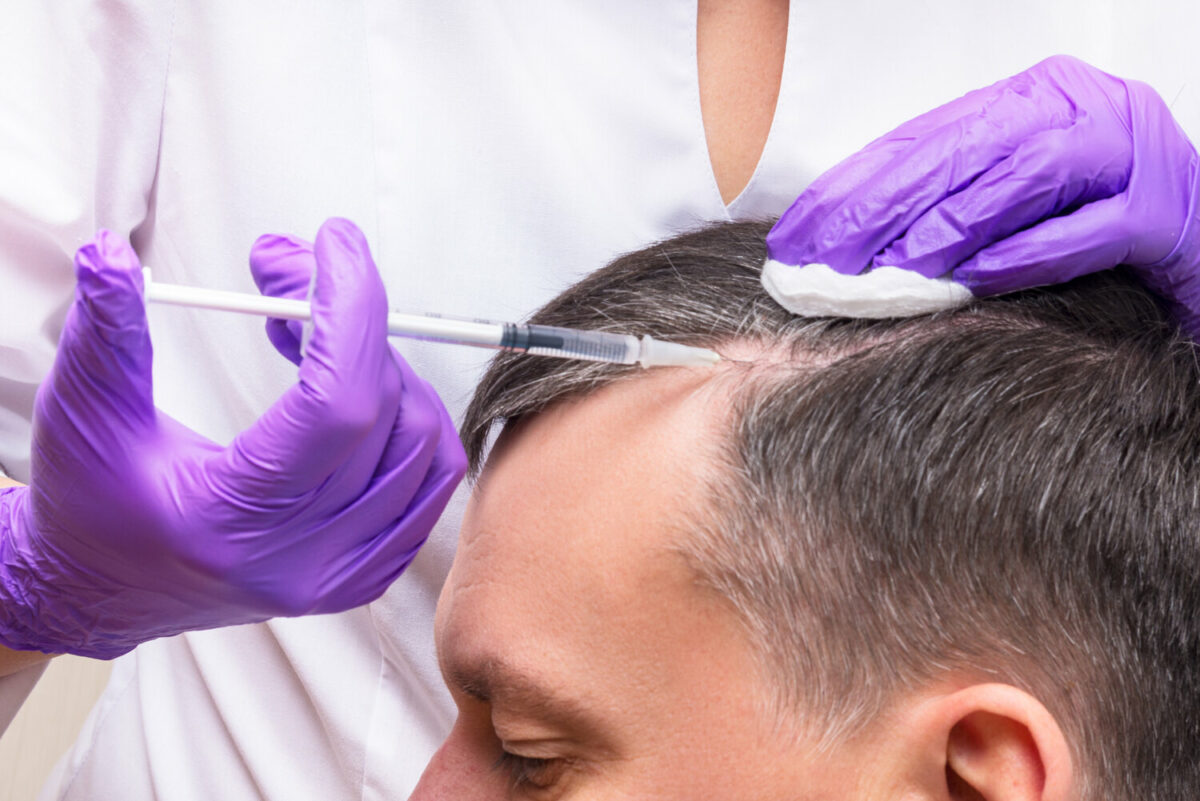The Lowdown on Micro-needling for Hair Loss: Does it Work?
June 7, 2023 by DoctorShawn

Hair loss can be an alarming reality for some people. It can affect both men and women and can occur due to a multitude of factors. You may have tried several remedies with little to no results. So, what’s the deal with micro-needling? Could it be the answer to your hair loss woes? In this blog post, we dive deep into the world of micro-needling and whether or not it can help restore your hair.
What is micro-needling?
First off, what is micro-needling? Micro-needling is a cosmetic procedure that entails using a roller or pen-like tool to create small punctures in the skin. The aim of this procedure is to enhance skin regeneration and collagen production. As a hair loss remedy, micro-needling works by boosting blood flow to the hair follicles, stimulating hair growth, and improving its thickness. A series of micro-needling sessions can be performed over a few months to achieve significant results.
Does it work?
So, does it work? The short answer is yes! Micro-needling has shown to be a promising hair loss remedy. A study published in the International Journal of Trichology found that micro-needling significantly improved hair loss in both men and women. Another study conducted on female pattern hair loss revealed that micro-needling combined with topical minoxidil (a popular hair loss product) was more effective than minoxidil alone. It’s worth noting that micro-needling may not work for everyone, and you should discuss this treatment with your healthcare professional.
Here’s a a few summaries of recent research on micro-needling (often in combination with other treatments) for hair loss.
-
Dhurat, R., & Mathapati, S. (2015). Response to Microneedling Treatment in Men with Androgenetic Alopecia Who Failed to Respond to Conventional Therapy. Indian Journal of Dermatology, 60(3), 260–263. This study found that microneedling combined with conventional therapy (minoxidil) significantly improved hair growth in men with androgenetic alopecia who had not responded to minoxidil alone.
-
Dhurat, R., Sukesh, M. S., Avhad, G., Dandale, A., Pal, A., & Pund, P. (2013). A Randomized Evaluator Blinded Study of Effect of Microneedling in Androgenetic Alopecia: A Pilot Study. International Journal of Trichology, 5(1), 6–11. This randomized, evaluator-blinded study demonstrated that microneedling combined with minoxidil was more effective in promoting hair growth in patients with androgenetic alopecia than minoxidil treatment alone.
-
Almohanna, H. M., Ahmed, A. A., Tsatalis, J. P., & Tosti, A. (2019). The Role of Vitamins and Minerals in Hair Loss: A Review. Dermatology and Therapy, 9(1), 51–70. This review highlights the potential benefits of microneedling for hair loss and suggests that combining it with topical treatments, such as vitamins and minerals, may enhance its effectiveness.
-
Khatu, S. S., More, Y. E., Gokhale, N. R., Chavhan, D. C., & Bendsure, N. (2014). Platelet-rich plasma in androgenic alopecia: Myth or an effective tool. Journal of Cutaneous and Aesthetic Surgery, 7(2), 107–110. This study investigates the use of platelet-rich plasma (PRP) combined with microneedling for treating androgenetic alopecia, showing promising results in terms of hair density and thickness improvements.
Side Effects
Micro-needling, when done by a professional, is relatively safe and has minimal side effects. You may experience redness, swelling, or slight bleeding immediately after the procedure, but these symptoms usually subside after a few hours. You should avoid direct sunlight and harsh hair products for at least a day after the treatment.
Risks of at-home treatment
Performing microneedling at home can pose several potential risks, as the procedure requires precision and sterile conditions to be carried out safely. Some of the risks associated with at-home microneedling include:
-
Infection: Using non-sterile equipment or not properly disinfecting the skin before treatment can introduce bacteria and lead to infections.
-
Scarring: Incorrect technique or using needles that are too long or too deep can cause damage to the skin, resulting in scarring or the formation of keloids.
-
Hyperpigmentation: Improper microneedling technique may result in skin discoloration, particularly for individuals with darker skin tones or those prone to post-inflammatory hyperpigmentation.
-
Skin irritation: At-home microneedling may cause excessive redness, swelling, or irritation, especially if the skin is sensitive or not adequately prepared before the procedure.
-
Inconsistent results: Lack of professional expertise and standardized equipment can lead to uneven penetration of the needles, resulting in inconsistent treatment outcomes.
-
Aggravation of skin conditions: Attempting microneedling at home without consulting a healthcare professional could exacerbate pre-existing skin conditions, such as acne, rosacea, or eczema.
-
Allergic reactions: At-home microneedling combined with topical products may increase the risk of allergic reactions or sensitivities due to enhanced absorption of the products.


